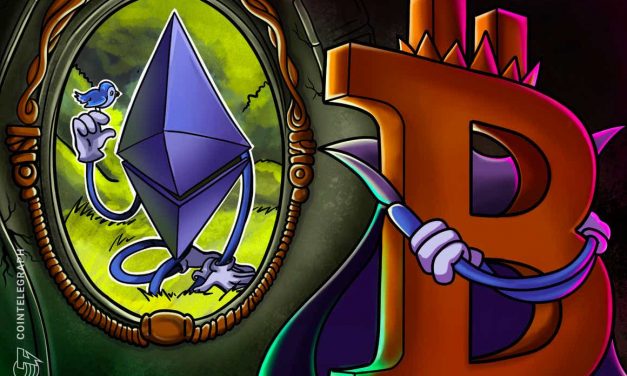Biden’s controversial anti-crypto Comptroller nominee withdraws
The Office of the Comptroller of the Currency in the USA will operate with only an acting Comptroller for a little longer after President Biden’s nominee, Saule Omarova, withdrew her candidacy from the confirmation process.In response to Omarova’s withdrawal, President Biden said on Dec. 7, “Saule was subjected to inappropriate personal attacks that were far beyond the pale.”The Comptroller of the Currency oversees the regulation of chartered banks across the country. Cryptocurrency stakeholders saw Omarova as a poor choice for the Comptroller due to her anti-crypto sentiments.Omarova fielded heated lines of questioning from Republican and some Democratic senators on The Committee on Banking, Housing, and Urban Affairs in hearings about her views on private banking and cryptocurrency regulation. Some Republicans, such as Senator John Kennedy focused on Omarova’s upbringing in the Soviet Union. During Nov. 18 in Senate hearings, Republican Senator Cynthia Lummis questioned Omarova on her position regarding cryptocurrency and stablecoins. Omarova expressed concern that eventually private tech companies that deploy the stablecoin infrastructure would put private profit-based interests above the public need for open banking.When asked whether she believes that government-issued fiat currency is superior to private commerce, Omarova responded:“I worry about allowing private innovation to undermine a lot of important public policies that we need to pursue.”Omarova attended Moscow State University in Moscow, Russia on the V.I. Lenin Personal Academic Scholarship where she reportedly wrote a thesis about Karl Marx. The thesis was featured on Omarova’s resume in April 2017. Republican Senator Pat Toomey was told that the thesis was deleted, and therefore it could not be produced.Related: Lines in the sand: US Congress is bringing partisan politics to cryptoRepublican Senator Mike Crapo challenged Omarova to explain her position on federally chartered banks as they pertain to climate change. She advocates for the banking system having the power to put climate change-contributing industries, which she had referred to as “socially sub-optimal industries,” out of business by preventing them accessing to bank loans. Her position states, “the way we get rid of these carbon financers is we starve them of their source of capital.”In light of Omarova backing out, President Biden will have to nominate another candidate for the Comptroller.
Čítaj viac






